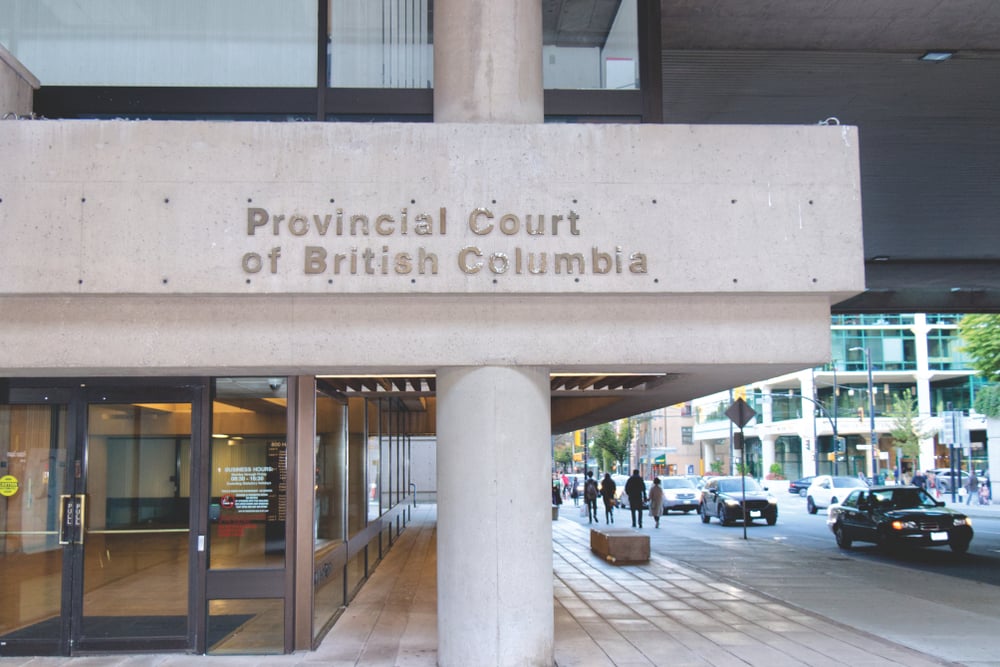British Columbia is reopening. While essential workers in health care, law enforcement, food services, transportation and several other areas have never stopped working, they have recently been joined by barbers, retail workers, counsellors, some servers, childcare workers and others, working with enhanced social distancing measures in place.
The bravery of other essential service workers stands in stark contrast to the decision of British Columbia courts to cease normal operations, adjourn most trials, refuse to hear most applications to vary bail and shut down courthouses.
Some bail hearings and sentencings are proceeding through video and telephone appearances, and provincial courts have declared their intention to reopen to hear urgent matters on an extremely limited basis on Monday. Nevertheless, the courts have stopped performing the bulk of their duties.
This decision has had an enormous impact on justice system participants. Accused people who are not in custody face delays, often under onerous bail conditions restricting their liberty, while others languish in jail awaiting trial. These inmates must live with the dread of an outbreak while confined. Victims must also wait for the opportunity to pursue justice through the courts.
It is not only hospitals and emergency services that have outperformed the courts in their response to this public health crisis. Supermarkets, hardware stores, drive-thru fast food outlets, liquor stores, cannabis shops and some hotels remained willing and able to serve the citizens of B.C. Mining, new construction and resource extraction continued. Each sector implemented social distancing and health measures to slow the spread of the virus
It is incumbent on the courts to explain why they did not copy the example of other industries which remained open. Are the courts less important than Canadian Tire? Is the provision of vodka and cannabis more essential than justice?
Former attorney general Geoff Plant recently highlighted the absurdity of the current state of affairs when he tweeted: “In BC today it is possible to get a manicure and order a nice meal at an expensive (uncrowded) restaurant but you cannot commence a proceeding for child support in Provincial Court.”
Sheriffs, correctional officers, the police and inmates must all still work in close physical proximity to each other, so this shutdown was clearly not undertaken with their welfare in mind. Instead, it protects two groups: lawyers and judges. They derive the most protection from the current shutdown as they can avoid almost all physical contact with other justice system participants.
This refusal to take the same low risks as a teenage barista or someone earning minimum wage in a grocery store lengthens the time hundreds of presumptively innocent people must be exposed to the virus in jail and denies thousands of others access to justice. The fact an institution premised on the principle of equality before the law is behaving in such a self-interested way, while placing the burden of its retreat on less privileged members of society, ought to outrage the public.
Provincial Court judges are paid more than $250,000 annually while justices of the B.C. Supreme Court collect $314,000. The salary range for Crown counsels is $87,615 to $225,785. These generous salaries are provided because the rule of law is deemed essential in a democracy. Consequently, the public should demand the same level of devotion from the most highly paid public servants as it does from other justice system employees who make a fraction of their salaries.
It is mystifying how, in a constitutional democracy, the judicial branch was able to simply decide to stop conducting trials. When asked by this writer how this decision was made, the Ministry of the Attorney General stated: “the decision to suspend regular court operations was made by the courts. Under our system of law, the judicial branch of government is separate and independent from the executive branch.”
This buck-passing statement demonstrates a disturbing misunderstanding of the separation of powers. It is meant to ensure legislators do not interfere in the day-to-day operation of the justice system by putting political pressure on judges or by trying to influence the outcome of trials. It does not confer upon the judicial branch the power to unilaterally decide to stop performing its duties. Courts exist to serve the citizenry, so any decision to suspend normal operations for an extended period ought to have the consent of the people, through their elected representatives.
Despite their high salaries and lofty status, judges are public servants, employed by the people of British Columbia. It is high time their bosses told them to get back to work. ![]()
Read more: Coronavirus
















Tyee Commenting Guidelines
Comments that violate guidelines risk being deleted, and violations may result in a temporary or permanent user ban. Maintain the spirit of good conversation to stay in the discussion.
*Please note The Tyee is not a forum for spreading misinformation about COVID-19, denying its existence or minimizing its risk to public health.
Do:
Do not: